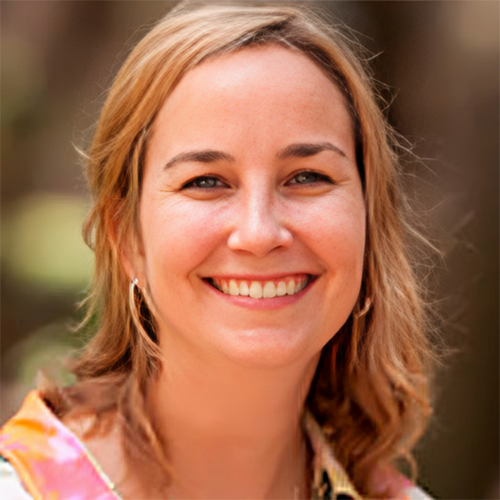
Emily S. Beck
Associate Chair, Hispanic Studies / Associate Professor of Spanish / Affiliate Faculty, Women and Gender Studies Program
Education
Columbia University, New York, NY
Ph.D. in Medieval and Early Modern Spanish Literature and Culture
Columbia University, New York, NY
Ph.D. Certificate in Medieval and Renaissance Studies
Columbia University, New York, NY
M.A. in Medieval and Early Modern Spanish Literature and Culture
University of California, Los Angeles
B.A. in Comparative Literature, Minor in Spanish Literature, Phi Beta Kappa
Research Interests
My research focuses on Medieval and Early Modern Spain, particularly the chivalric tradition in Iberia and its pan-European context, the court of Queen Isabel and King Ferdinand and the Age of the Catholic Monarchs, Iberian religions and la convivencia of Christians, Jews and Muslims in the peninsula, the intersection of literature, politics, and history, and gender theory. I am interested in works that attempt to define and impose idealized behaviors, and my research examines the implications that these expectations have for those at the margins of Iberian society, including women and minorities.
My recent publications examine the role of medievalisms in Amazon Prime’s El Cid television program and the RTVE show Isabel, reassess the figure of the Renaissance hero El Gran Capitán in the years after Queen Isabel’s death, consider the spaces for “passing” that converts to Judaism might read in a hybrid text that combines a mythological journey with a list of the duties of servers at court called Crianza y virtuosa doctrina, and highlight the role of humor in the early theatrical works of Juan del Encina.
I am also committed to active social engagement in the Carolina Lowcountry and Southeastern Region. In 2016, I co-founded the South Carolina Medievalists Group, a group of professional scholars of all disciplines to engage current academic approaches and discuss the state of medieval research and teaching in South Carolina. I teach a service learning course (Span 400) for graduating undergraduates to have the opportunity to complete internships with the Spanish-speaking population in the Charleston region. This course allows students to work one-on-one with immigrants to the area, examine the institutions that serve immigrants, and consider the ways to be active and engaged citizens in our society beyond graduation. From July 2018 to June 2023, I served as the Director of the M.Ed. Program in Languages, an interdisciplinary graduate program offered through the School of Education and the School of Languages, Cultures, and World Affairs. Since August 2024, I have served as Associate Chair of the Department of Hispanic Studies and enjoy the opportunity to advise and help promote Hispanic Studies at the College of Charleston and with our community partners.
Courses Taught
Undergraduate-level courses:
Spanish language courses SPAN 190-202, including special topical courses as First Year Experience courses.
SPAN 313 Writing Skills Through Culture
SPAN 314 Conversational Skills Through Culture, including a Globally-Connected version of the course in partnership the University of Santiago in Chile in Fall 2021.
SPAN 320 Introduction to Textual Analysis
SPAN 333 Special Topics in Hispanic Cultures
SPAN 367 Select Readings in Early Modern Spain (with topics that have varied from Convivencia in Early Modern Spain to Representations of Conflict and Resolution)
SPAN 400 Service Learning
SPAN 492 492 Seminar in Hispanic Studies: Women in Spanish Letters
SPAN 493 Don Quijote de La Mancha
SPAN 493 El amor en la España Imperial
Graduate-level courses:
SPAN 630 Graduate Seminar: Iberian Cultures
SPAN 630 Graduate Seminar: Convivencia in Spain
LALE 695 M.Ed. Teaching Portfolio Preparation for Spanish Teachers tied to the ACTFL standards
LALE 695 M.Ed. Teaching Portfolio Preparation for Multilingual Learner Education Teachers tied to the TESOL standards
Publications
“Revisiting Iberian Convivencia Through Amazon Prime’s El Cid,” Hispania 107.4 (2024): 437-449.
“The Hermeneutics of Iberian Identity: Reassessing the Stability of Signs in the Theatrical Works of Juan del Encina,” Bulletin of Spanish Studies 101.8 (2024): 1103-1120.
“Reading the Gran Capitán: Heroism, Storytelling, and the Political Transition after Queen Isabel I,” eHumanista 60 (2024): 258-270.
“Religious Medievalisms in RTVE’s Isabel.” In Premodern Rulers and Postmodern Viewers: Gender, Sex, and Power in Popular Culture. Eds. Janice North, Karl Alvestad, and Elena Woodacre. New York: Palgrave Macmillan, 2018: 159-178.
“Contemplating the Noble Ethos: Implications for Jewish Converts in the Writings of Alfonso de Cartagena,” in Revisiting Convivencia in Medieval and Early Modern Iberia. Ed. Connie L. Scarborough. Newark, DE: Juan de la Cuesta, 2014: 355-372.
“El espejo del estadista traicionero: Reexaminación de Vida de Marco Bruto de Quevedo,” Hispania 97.3 (Fall 2014): 441-451.
“Historiographical Approaches to Iberian Multiculturalism and Castilian Imperialism during the Siglo de Oro,” eHumanista: Journal of Iberian Studies 24 (Fall 2013): 479-490.
“Debating Arms and Letters: Curial e Güelfa and Noble Ambitions in the Fifteenth Century,” La corónica 40.1 (2011): 63-85.
“‘Porque oyéndolas les crescian los corazones’: Chivalry and the Power of Stories in Alfonso X and Ramon Llull,” Bulletin of Spanish Studies 88.2 (2011): 159-176.